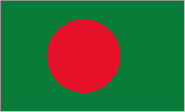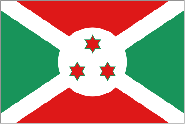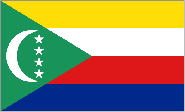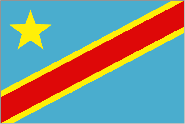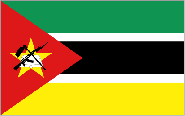Supporting LDCs to advance National Adaptation Plans
Project Overview
The NAP-GSP is assisting Least Developed Countries (LDCs) to advance National Adaptation Plans (NAPs). The Global Support Programme on NAPs has been set up to assist countries to bring greater focus and attention to medium and long-term climate change adaptation planning as well as budgeting
The National Adaptation Plan Global Support Programme (NAP-GSP) is a UNDP-UNEP programme, financed by the LDCF.
Partner agencies to the NAP-GSP include UNDP, UNEP, WHO, FAO, IFAD, UNITAR, GEF, UNFCCC, GWP, GIZ , PROVIA, and UNISDR.
The NAP-GSP was launched on 14 June 2013 with financing from the Least Developed Country Fund (LDCF).
> For more information - please visit the NAP-GSP website
Please sign up to the NAP-GSP e-news to receive bi-monthly email updates from LDCS and partners about NAP-related activities:
Project Details
The Global Support Programme on NAPs has been set up to assist countries to bring greater focus and attention to medium and long-term climate change adaptation planning as well as budgeting.
News
The National Adaptation Plan - Global Support Programme (NAP-GSP) for Least Developed Countries (LDCs) was launched on 14 June 2013 with financing from the Least Developed Country Fund (LDCF) of the Global environment Facility (The GEF).
(1) Institutional support to develop NAP road-maps
(2) Training on relevant, tools, methods and guidelines to support effective climate change adaptation planning
(3) Knowledge sharing to enhance international and regional cooperation
The programme is jointly implemented by UNDP and UNEP in collaboration with development partners. NAP-GSP does not provide grants to requesting countries. Support from the programme can however assist countries to leverage finance from a variety of existing sources.
Countries interested in technical assistance from the NAP-GSP should send Official letters of request through their national UNFCCC focal points to UNDP and UNEP addressed to Rohini Kohli (rohini.kohli@undp.org) and Mozaharul Alam (Mozaharul.Alam@unep.org). The programme will accept requests on a rolling basis.
Country Initiatives
Programme Meetings and Workshops
NATIONAL NAP MEETINGS AND WORKSHOPS
> For updates on meetings and workshops please visit the NAP-GSP website
- DRC NAP Training Workshop
- Comoros NAP Training Workshop
- Malawi NAP Training Workshop
- Niger NAP Support Mission
- Cambodia NAP Support Mission
NAP-GSP REGIONAL TRAINING WORKSHOPS
LEG Regional Training Workshop on NAPs for Pacific LDCs in collaboration with NAP-GSP
The LEG Regional Training Workshop on NAPs for Pacific LDCs in collaboration with NAP-GSP is taking place in Port Vila, Vanuatu, from 3-7 November 2014. Representatives are present from the Cook Islands, Federated States of Micronesia, Fiji, Kiribati, Marshall Islands, Nauru, Niue, Palau, Papua New Guinea, Samoa, Solomon Islands, Tonga, Tuvalu, and Vanuatu. > MORE - LEG / NAP-GSP Pacific NAPs Regionl Training Workshop
Supporting LDCs to advance their National Adaptation Plans - Asia Regional Training Workshop
The Asia Regional Training Workshop was held on 17-20 February 2014 in Pattaya, Thailand. Representatives from Environment, Planning and Finance Ministries from nine Asian LDCs participated in this workshop, namely Afghanistan, Bangladesh, Bhutan, Cambodia, East Timor, Lao PDR, Myanmar, Nepal, and Yemen. > MORE - Asia Regional Training Workshop
Supporting LDCs to advance their National Adaptation Plans - Africa Regional Training Workshop (Anglophone)
The Regional Training Workshop for African Anglophone LDCs was held from 14-17 April 2014 in Addis Ababa, Ethiopia. Representatives from Environment, Planning and Finance Ministries from African LDCs participated in this workshop. > MORE - NAP Regional Training Workshop for African Anglophone LDCs
Supporting LDCs to advance their National Adaptation Plans - Africa Regional Training Workshop (Francophone) / Atelier régional de formation en Afrique
The Regional Training Workshop for African Francophone LDCs was held from 21-24 April 2014 in Addis Ababa, Ethiopia. Representatives from Environment, Planning and Finance Ministries from African LDCs participated in this workshop. > MORE - NAP Regional Training Workshop for African Francophone LDCs
MEETINGS AND EVENTS
> Decisions:
Key decisions were made on NAPs at COP19 in Warsaw in November 2013, endorcing the NAP-GSP and inviting further participation in the NAP process.
> Side-events:
NAPs featured in many side-events at COP19. See links and reports, film and photos from the events.
> NAP-GSP meetings:
NAP-GSP team held meetings to advance the NAPs process with at least 10 LDC delegations, and several non-LDC participants.
Reports and Publications
Project Brief / Fact Sheet
Gros plan sur le Plan National d’Adaptation (PNA) Enseignement de la République Centrafricaine (RCA)
National Adaptation Plan in Focus: lessons from Cambodia
National Adaptation Plan in Focus: lessons from Central African Republic
National Adaptation Plan in Focus: lessons from Sierra Leone
National Adaptation Plan in Focus: lessons from South Sudan
National Adaptation Plan in Focus: lessons from Guinea Bissau
National Adaptation Plan in Focus: lessons from Timor-Leste
National Adaptation Plans in focus: lessons from Tanzania
Gros plan sur le Plan National d’Adaptation (PNA) Enseignement de la Guinée
Gros plan sur le Plan National d’Adaptation (PNA) Enseignement de la Côte d’Ivoire
National Adaptation Plans in focus: lessons from Côte d’Ivoire
National Adaptation Plans in focus: lessons from Guinea
National Adaptation Plans in focus: lessons from St Vincent and the Grenadines
National Adaptation Plans in focus: Lessons from Nepal
National Adaptation Plans in focus: Lessons from Saint Lucia
National Adaptation Plans in focus: Lessons from Mozambique
National Adaptation Plans in focus: Lessons from Somalia
National Adaptation Plans in focus: Lessons from Djibouti
National Adaptation Plans in focus: Lessons from Senegal
National Adaptation Plans in focus: Lessons from Albania
National Adaptation Plans in focus: Lessons from Myanmar
National Adaptation Plans in focus: Lessons from Kazakhstan
National Adaptation Plans in focus: Lessons from the Democratic Republic of the Congo
National Adaptation Plans in focus: Lessons from Haiti
National Adaptation Plans in focus: Lessons from Benin
National Adaptation Plans in focus: Lessons from Liberia
National Adaptation Plans in focus: Lessons from Bangladesh
Highlights
Expanding the ongoing support to least developed countries with country-driven processes to advance National Adaptation Plans (NAPS)
Assisting developing countries with country-driven processes to advance National Adaptation Plans (NAPs)
Video
Video: Ecosystem-based Adaptation Supplementary Guidelines for NAPs
Knowledge Products
Online Compendium: formulating, implementing and financing a successful NAP process
Skills Assessment for National Adaptation Planning: A new and interactive methodology
Making climate-sensitive investments in agriculture
UNDP’s Outlook on Communities and Local Resilience in the Asia-Pacific
Integrating Agriculture in National Adaptation Plans (NAP–Ag): Programme Highlights 2015-2018
Training & Tools
3 Module E-training course: Building Climate resilience through EbA Planning
NAP-GSP E-training course: "Mastering National Adaptation Plans (NAPs) - From Start to Finish”
Skills assessment for National Adaptation Planning
Training of Trainers: Capacity Development on Economics of Adaptation, Water Security and Climate Resilient Development in Africa - Addis Ababa, 25-29 Nov 2013
PROVIA Guidance on Assessing Vulnerability, Impacts and Adaptation to Climate Change
National Adaptation Plans - Technical Guidelines for NAP Process
Designing Climate Change Adaptation Initiatives: A Toolkit for Practitioners
Reports
National Adaptation Plans Report: Lessons from Liberia 2019
Proceedings of the Africa LDCs Regional Anglophone Training Workshop in Addis Ababa, Ethiopia
Enabling Resilience for All: Avoiding the Worst Impacts: Summary Report of the 6th Asia-Pacific Climate Change Adaptation Forum
Reports and Publications of relevance to Country Teams
National Adaptation Plans 2018 - Progress in the process to formulate and implement National Adaptation Plans
Demystifying adaptation finance for the private sector
Progress, experience, best practices, lessons learned, gaps, needs and support provided and received in the process to formulate and implement national adaptation plans
Addressing water in National Adaptation Plans: Water supplement to the UNFCCC NAP Technical Guidelines
How women build resilience: Inclusion of gender in understanding and adapting to Myanmar’s climate change impacts
Brochures, Posters, Communications Products
NAP-GSP email newsletter November / December 2016
NAP-GSP email newsletter November/December 2015
NAP-GSP email newsletter April 2014 - French version
Ecosystem-based Adaptation in Action: Cambodia
Assessments and Background Documents
Board Meeting Reports
NAP-GSP - COP19 Informal Coordination Meeting Minutes
Plans and policies of relevance to NAPs for Least Developed Countries (LDCs)
Zambia’s National Climate Change Response Strategy – December 2010
Uganda’s National Development Plan (2010/11-2014/15) – April 2010
Sierra Leone's Strategy for the Development of a Climate Change Abatement Economy: Introducing and Implementing REDD/REDD+ – July 2010
Armenia's Assessment of Legal and Institutional Framework for Disaster Management and Disaster Risk Information Systems – September 2009
Solomon Islands’ National Climate Change Policy (2012-2017) – June 2012
Bangladesh Climate Change Strategy and Action Plan – September 2008
Vanuatu’s National Climate Change Adaptation Strategy – July 2011 (Second Draft)
Tuvalu’s National Strategic Action Plan for Climate Change and Disaster Risk Management
Sao Tome and Principe’s National Strategy for Climate Change Adaptation – December 2004 (French)
Rwanda’s National Strategy for Climate Change and Low Carbon Development – October 2011
Nepal’s Climate Change Policies and Plans: Local Communities’ Perspective – January 2011
Mali’s Elements of National Policy for Adaptation to Climate Change – May 2008
Lao People’s Democratic Republic's Strategy on Climate Change – 2010 (Lao)
Ethiopia’s Climate-Resilient Green Economy Strategy – 2012
Bhutan National Adaptation Programme of Action (NAPA) Official Document - May 2006
Plans and policies of relevance to NAPs for Non-Least Developed Countries (non-LDCs)
Turkmenistan's National Climate Change Strategy – June 2012
Kenya’s National Climate Change Response Strategy – April 2010
Tonga’s Joint National Action Plan on Climate Change Adaptation and Disaster Risk Management – July 2010
Republic of the Marshall Islands’ National Climate Change Policy Framework – January 2011
Papua New Guinea’s Interim Action Plan for Climate-Compatible Development – August 2010
Namibia's National Policy on Climate Change – September 2010
Ghana's National Climate Change Adaptation Strategy - November 2012
Federated States of Micronesia, Nationwide Climate Change Policy - 2009
Cameroon National Plan for Environmental Management (French)
Cook Islands' Joint National Action Plan for Disaster Risk Management and Climate Change Adaptation (JNAP) 2011- 2015
Multimedia
NAP-GSP: Moldova workshop
From the 28th to 30th of June, 2016, at the Radisson Blu Legrand Hotel in Chisinau, Moldova, Eurasian representatives from 16 countries met for a joint UNDP-UN environment National Adaptation Plan Global Support Programme (NAPGSP) workshop to discuss and collaborate on existing national climate change adaptation strategies. A total of 30 delegates attended the regional workshop including officials from ministries of finance, planning and environment.
Filmed interview on the Ugandan NAP process
Ms. Edith Kateme-Kasajja, National Planning Authority, Uganda, in an interview with the UNDP/UNEP National Adaptation Plan Global Support Programme - NAP-GSP - about the climate change National Adaptation Plan - NAP - process in Uganda.
Filmed interview on the NAP process in Nepal
Interview with Mr. Lava Bahadur KC, Under Secretary, Climate Change Management Division, Ministry of Science and Technology and Environment, Secretariat Complex, Kathmandu, Nepal, about the NAP process. He discusses NAP opportunities, entry points, gaps and challenges in Nepal.
Filmed interview on the Mozambique NAP process
Mr. Luis Buchir, Ministry of Environment and Forestry, Mozambique, in an interview with the UNDP/UNEP National Adaptation Plan Global Support Programme - NAP-GSP - about the climate change National Adaptation Plan - NAP - process in Mozambique.
Filmed interview on the Malawi NAP process
Mr. Frederick Kossam, Ministry of Environment and Climate Change Management, Malawi, in an interview with the UNDP/UNEP National Adaptation Plan Global Support Programme - NAP-GSP - about the climate change National Adaptation Plan - NAP - process in Malawi.
Filmed interview on the Liberia NAP process
Mr. Anthony Digen Kpadeh, Assistant Director / Liberian Hydrological Service, Ministry of Lands Mines and Energy, Liberia Hydrological Service, in an interview with the UNDP/UNEP National Adaptation Plan Global Support Programme - NAP-GSP - about the climate change National Adaptation Plan - NAP - process in Liberia.
Filmed interview on the Gambian NAP process
Mr. Pa Ousman JarJu, Director and UNFCCC Focal Point, Department of Water Resoruces (DWR), Gambia in an interview with the UNDP/UNEP National Adaptation Plan Global Support Programme - NAP-GSP - about the climate change National Adaptation Plan - NAP - process in Gambia.
New NAP-GSP Film on supporting LDCs to advance NAPs
The National Adaptation Plan Global Support Programme (NAP-GSP) is a UNDP-UNEP programme, financed by the LDCF.
The NAP-GSP is assisting Least Developed Countries (LDCs) to advance National Adaptation Plans (NAPs). NAPs will bring greater focus and coordination to country-led efforts in disaster management and disaster risk reduction, and climate change adaptation.
This short film was developed by the NAP-GSP team and programme partner UNITAR.
Monitoring and Evaluation
Project monitoring and evaluation will be conducted in accordance with established UNDP, UNEP and GEF procedures and will be undertaken by the project team under the oversight of the UNDP-GEF units based in Bangkok and the UNEP Division for Programme Implementation (DEPI) in Nairobi respectively.
The goal of this programme is to support LDCs to commence a process of integrating medium- to long-term planning for adaptation to climate change within, or aligned with, current development planning and budgeting processes. This will ensure that a successful NAP is not a stand-alone document, but will lead to the integration of adaptation into the existing mainstream development and poverty reduction plans and budgets of a particular country. The programme will strengthen institutional and technical capacities in all LDCs for iterative development of comprehensive NAPs that are country-driven, and based on existing national development priorities and strategies and processes. The programme goal and objective will be achieved by: i) developing operational roadmaps and implementing training to advance medium- to long-term adaptation planning processes in the context of LDC national development strategies; ii) making tools and approaches available to LDCs to support key steps in the NAP process; and iii) exchanging lessons learned and knowledge through South-South and North-South Cooperation.
|
Outcome |
Output |
|
Outcome 1 Least Developed Countries are capacitated to advance medium- to long-term adaptation planning processes in the context of their national development strategies and budgets |
Output 1.1 Stock-take of information and processes that are of relevance to the NAP process in the country and identification of key gaps to integrate climate change into medium- to long-term planning processes. This will include ensuring that key stakeholders are engaged in taking stock of on-going initiatives of relevance to NAPs, defining the scope of key requirements and expectations, and assessing the gaps and needs – in terms of information, skills and institutional capacity – for advancing medium- to long-term planning and budgeting processes for adaptation in the context of country specific planning processes and guidance emerging from the COP. |
|
Output 1.2 National and sub-national institutional and coordination arrangements established in 12 LDCs, including financial and other requirements for advancing to medium- to long-term adaptation planning and budgeting. |
|
|
Output 1.3 National roadmaps on the NAP process are formulated, including elements for monitoring the progress of their implementation. The roadmaps will be country-specific, outlining country-specific gaps that need to be filled, budget support required (including an inventory of national or international expertise and other inputs), and timelines for deliverables related to the advancement of NAPs, including reporting on progress to the LEG, AC, UNFCCC subsidiary bodies, etc. The roadmaps will contain information that can be submitted to the LDCF and/or other funding sources with the aim of obtaining the additional finance necessary to support and advance the NAP process in the country |
|
|
Outcome 2 Tools and approaches to support key steps of the National Adaptation Plan process are developed and accessible to all LDCs |
Output 2.1 Technical guidance tools and detailed methodologies by sector, policy materials, guiding principles, case studies on lessons and good practices made accessible in local languages and usable formats to all LDCs, developed in partnership with relevant stakeholders. Effort will be made use existing sectoral guidance and support, as is being developed by other organisations, rather than create new ones. For example, for health, WHO is currently developing guidance that covers vulnerability and assessments, economic tools, gender, early warning systems, indicators for health system resilience and health sector-related NAP guidance. |
|
Output 2.2 National teams in 12 LDCs are trained in the use of the tools and approaches to advance to medium- to long-term adaptation planning and budgeting. |
|
|
Output 2.3 Web-based training materials prepared for use by countries as they commence their respective NAP processes. |
|
|
Outcome 3. Exchange of lessons and knowledge through South-South and North-South Cooperation to enhance capacities to formulate and advance the National Adaptation Plan process |
Output 3.1 South-South and North-South transfer of technical and process-orientated information on experiences, good practice, lessons and examples of relevance to medium- to long-term national, sectoral and local plans and planning and budgeting processes are captured, synthesised and made available to all LDCs to utilise in advancing the NAP process. |


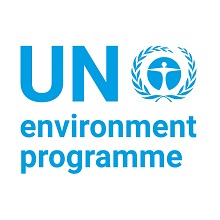
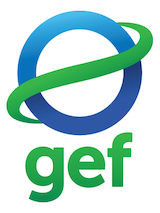


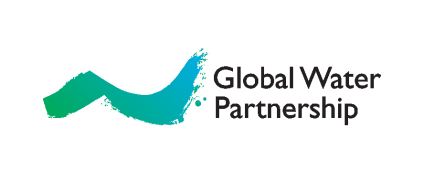
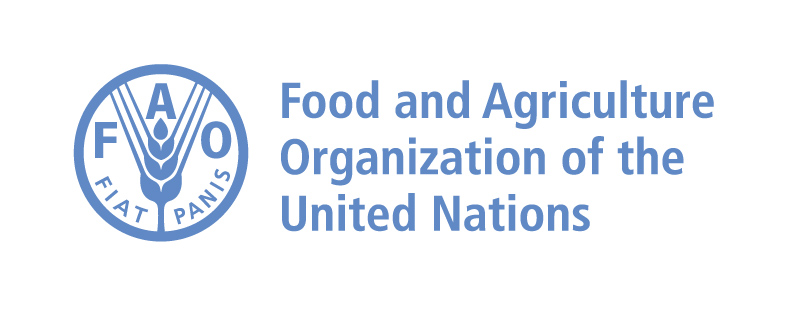
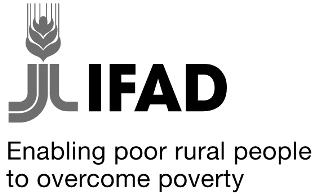
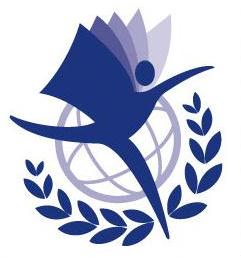

 (Sy)nergizing adaptation actions in Ivory Coast through the GCF-funded National Adaptation Plan project
(Sy)nergizing adaptation actions in Ivory Coast through the GCF-funded National Adaptation Plan project 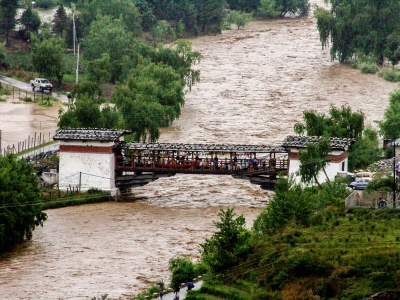 Assessing climate risks and vulnerabilities is essential for adapting to climate change
Assessing climate risks and vulnerabilities is essential for adapting to climate change 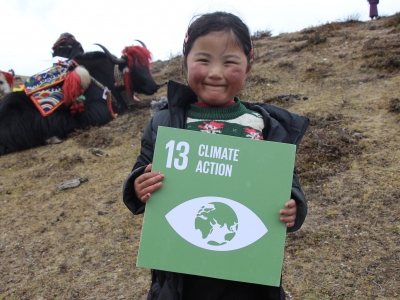 A message from the NAP-GSP
A message from the NAP-GSP 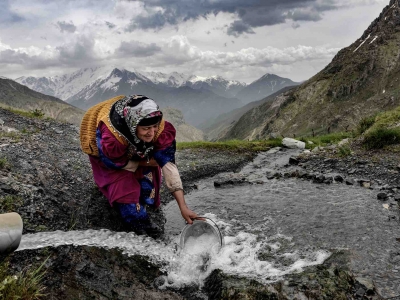 UNDP joins Least Developed Countries Expert Group at COP26 to celebrate 20 years of climate action
UNDP joins Least Developed Countries Expert Group at COP26 to celebrate 20 years of climate action 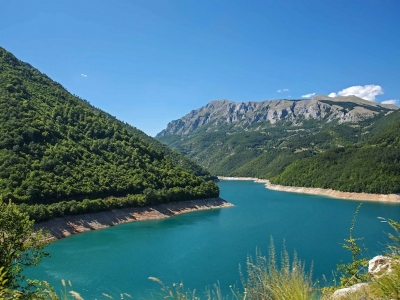 Montenegro strengthens its capacity to develop a National Adaptation Plan with funding provided by the Green Climate Fund
Montenegro strengthens its capacity to develop a National Adaptation Plan with funding provided by the Green Climate Fund 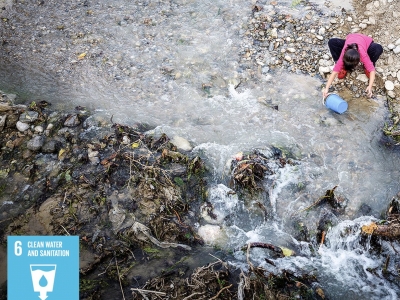 Integrating water into the National Adaptation Plan process
Integrating water into the National Adaptation Plan process 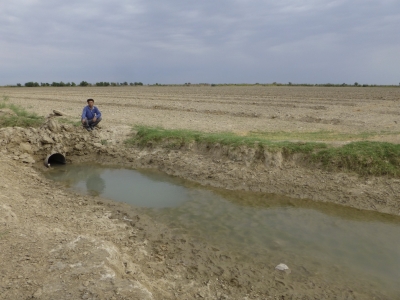 Turkmenistan begins developing a National Adaptation Plan with funding approved by the Green Climate Fund
Turkmenistan begins developing a National Adaptation Plan with funding approved by the Green Climate Fund 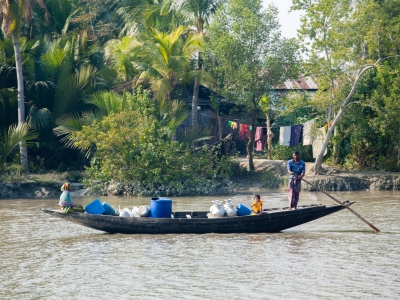 Adaptation and mitigation should go hand-in-hand and be locally-led
Adaptation and mitigation should go hand-in-hand and be locally-led 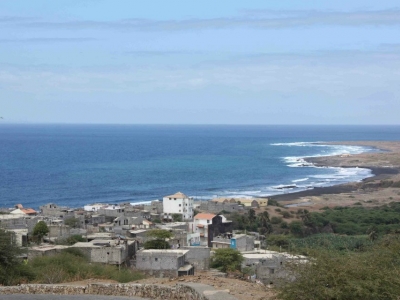 A South-South exchange with Lusophone LDCs on National Adaptation Plans
A South-South exchange with Lusophone LDCs on National Adaptation Plans 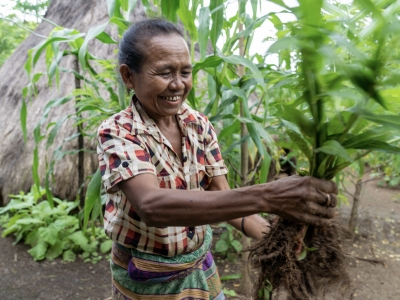 Timor-Leste submits its National Adaptation Plan to the UNFCCC
Timor-Leste submits its National Adaptation Plan to the UNFCCC 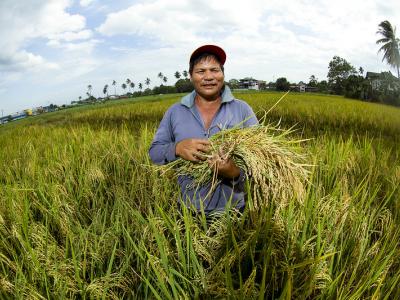 Spotlight on Communities and Local Resilience at the 7th Asia-Pacific Climate Change Adaptation Forum
Spotlight on Communities and Local Resilience at the 7th Asia-Pacific Climate Change Adaptation Forum 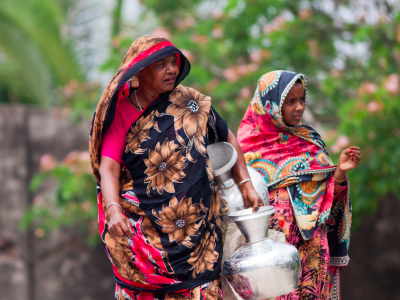 UNDP launches the Adaptation Innovation Marketplace at the Gobeshona Global Conference 2021
UNDP launches the Adaptation Innovation Marketplace at the Gobeshona Global Conference 2021 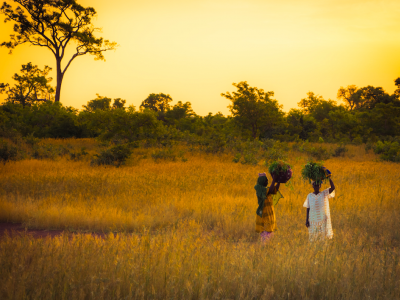 Raising adaptation action through aligning NAPs and NDCs in African LDCs
Raising adaptation action through aligning NAPs and NDCs in African LDCs  Uzbekistan advances its climate change adaptation planning
Uzbekistan advances its climate change adaptation planning 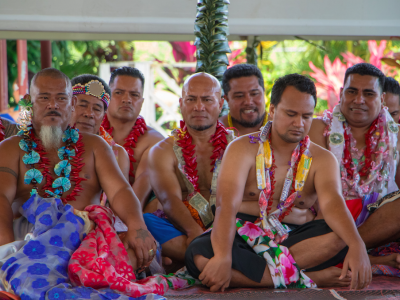 The matrix of two worlds working for better community resilience
The matrix of two worlds working for better community resilience 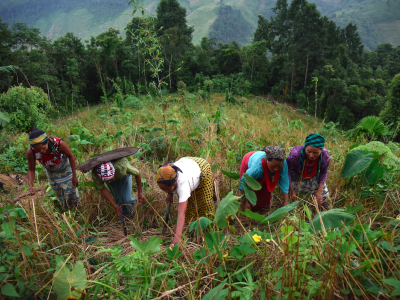 Adaptation Futures 2020: building resilience through long-term strategies
Adaptation Futures 2020: building resilience through long-term strategies 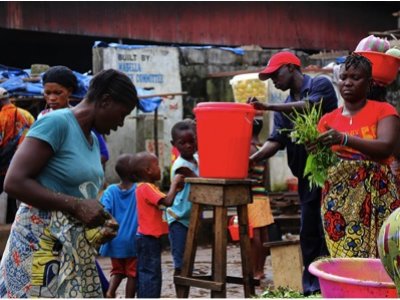 Sierra Leone prepares a National Adaptation Plan to achieve resilience across all sectors
Sierra Leone prepares a National Adaptation Plan to achieve resilience across all sectors 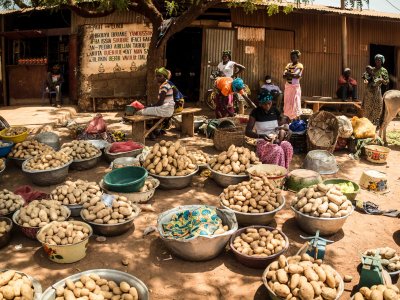 African LDCs discuss measuring, monitoring and evaluating their progress on adaptation in their NAP
African LDCs discuss measuring, monitoring and evaluating their progress on adaptation in their NAP 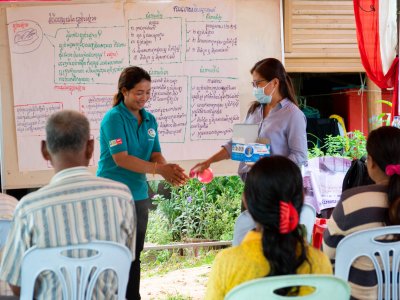 The impacts of COVID-19 on adaptation planning in Asian LDCs
The impacts of COVID-19 on adaptation planning in Asian LDCs 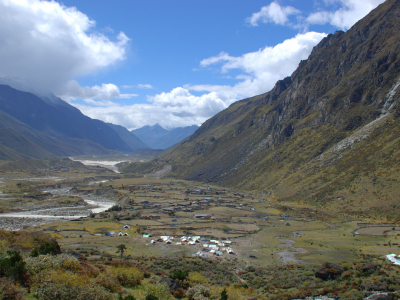 Advancing climate adaptation in Bhutan: Common challenges and solutions
Advancing climate adaptation in Bhutan: Common challenges and solutions 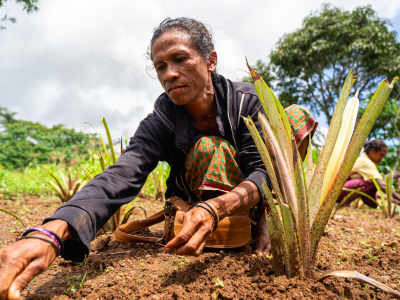 A small country’s multi-sector approach to a National Adaptation Plan
A small country’s multi-sector approach to a National Adaptation Plan 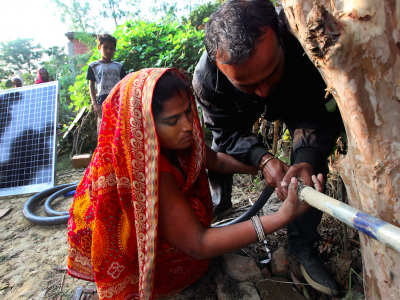 Ecosystem-based Adaptation Guidelines with example from Nepal’s National Adaptation Plan
Ecosystem-based Adaptation Guidelines with example from Nepal’s National Adaptation Plan  COVID-19 and the nature-health-nexus
COVID-19 and the nature-health-nexus  COVID-19 and the nature-health-nexus
COVID-19 and the nature-health-nexus 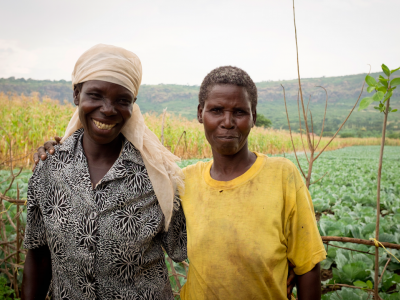 Experiences from Uganda's National Adaptation Plans' Process
Experiences from Uganda's National Adaptation Plans' Process 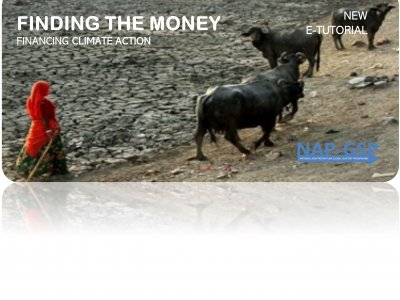 E-tutorial - Finding the money: Financing climate action
E-tutorial - Finding the money: Financing climate action 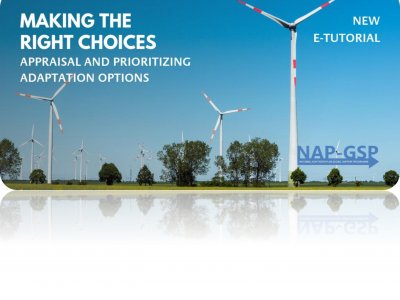 E-tutorial - Making the right choices: Appraisal of adaptation options
E-tutorial - Making the right choices: Appraisal of adaptation options 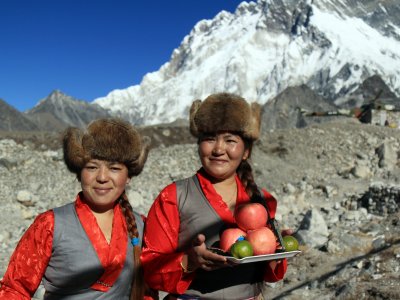 Universities and locally led climate action in Nepal
Universities and locally led climate action in Nepal 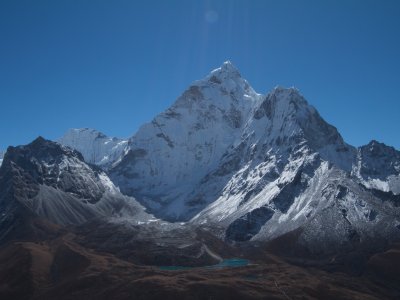 Success stories from Bhutan’s process to formulate and implement the NAP
Success stories from Bhutan’s process to formulate and implement the NAP  Insights on adaptation planning from Gobeshona Conference, Bangladesh
Insights on adaptation planning from Gobeshona Conference, Bangladesh 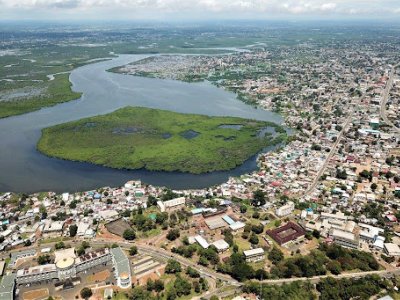 Looking back on success of Liberia’s NAP process in 2019
Looking back on success of Liberia’s NAP process in 2019 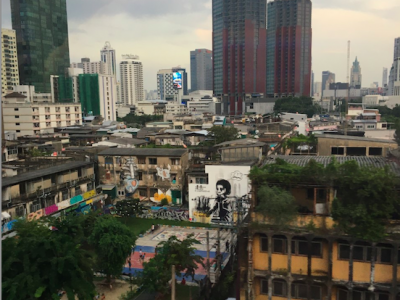 A deep dive into Urban Resilience
A deep dive into Urban Resilience  University of Liberia launches new degree program on Environmental Studies
University of Liberia launches new degree program on Environmental Studies 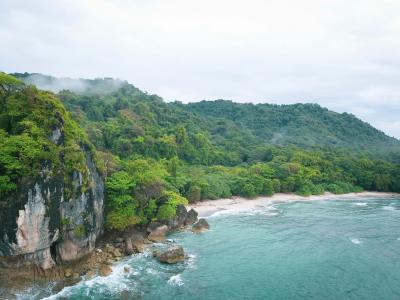 Costa Rica moves forward in the process to implement its National Adaptation Plan
Costa Rica moves forward in the process to implement its National Adaptation Plan 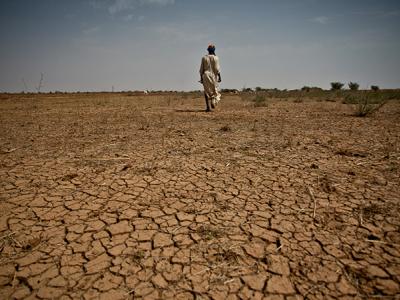 Launching of the NAP process in Mauritania
Launching of the NAP process in Mauritania 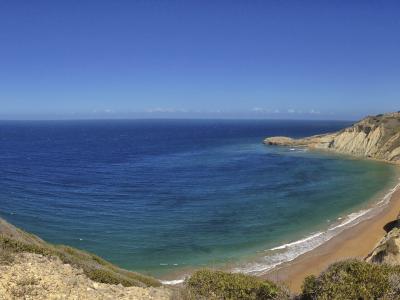 The Caribbean region explores innovative approaches to climate adaptation, supported by the GEF, UN Environment and UNDP
The Caribbean region explores innovative approaches to climate adaptation, supported by the GEF, UN Environment and UNDP 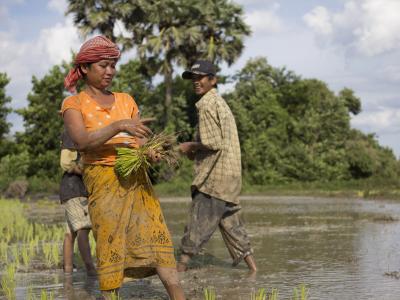 Cambodia strives for ownership of their GCF-NAP process
Cambodia strives for ownership of their GCF-NAP process  Adaptation planning in Tuvalu: Developing national ownership and building resilience
Adaptation planning in Tuvalu: Developing national ownership and building resilience 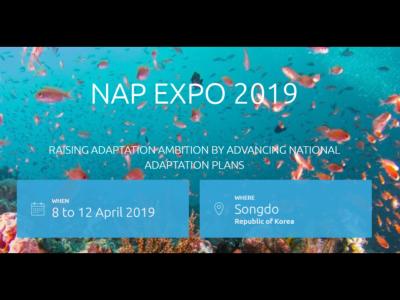 NAP Expo 2019: Raising adaptation ambitions by advancing NAPs
NAP Expo 2019: Raising adaptation ambitions by advancing NAPs 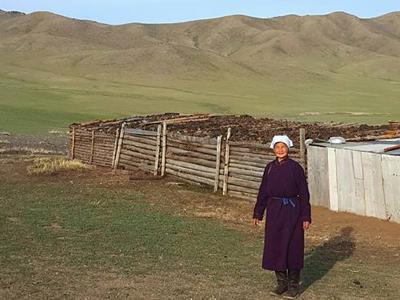 Mongolia achieves a milestone in National Adaptation Planning
Mongolia achieves a milestone in National Adaptation Planning 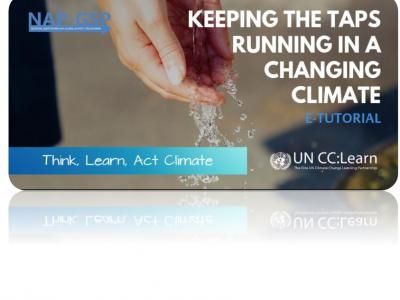 E-tutorial - Keeping the taps running in a changing climate
E-tutorial - Keeping the taps running in a changing climate 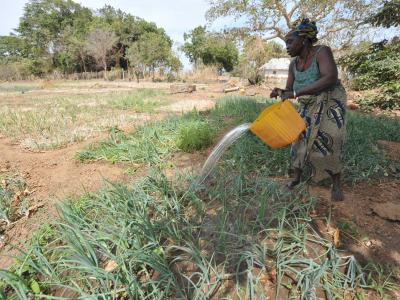 Laying the foundations for climate-sensitive budgeting and expenditure tracking in The Gambia
Laying the foundations for climate-sensitive budgeting and expenditure tracking in The Gambia 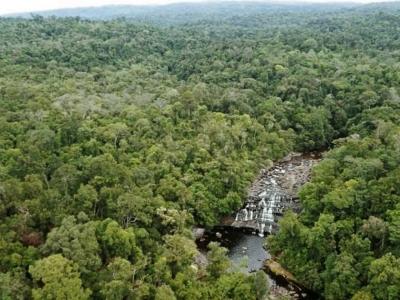 Lao PDR hosts major global funds in push for a climate-resilient, sustainable future
Lao PDR hosts major global funds in push for a climate-resilient, sustainable future 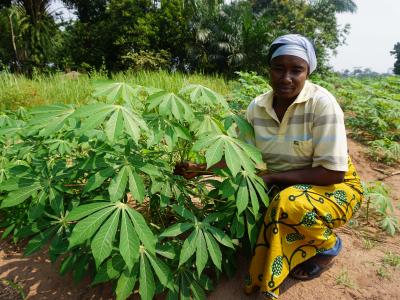 DRC launches National Adaptation Plan project to boost resilience, supported by GCF, UNDP
DRC launches National Adaptation Plan project to boost resilience, supported by GCF, UNDP 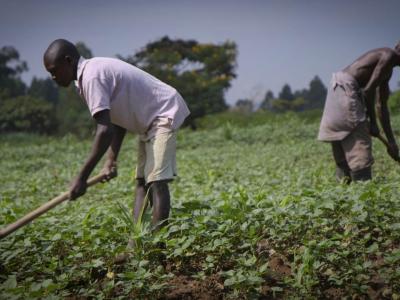 Webinar Recordings - Addressing agricultural resilience in long term climate planning instruments
Webinar Recordings - Addressing agricultural resilience in long term climate planning instruments  Empowering effective adaptation planning with Pacific LDCs
Empowering effective adaptation planning with Pacific LDCs 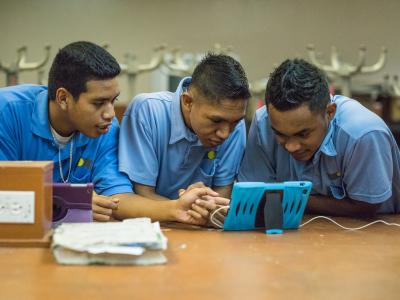 European Union launches SWITCH-Asia Grants Programme Call for Proposals
European Union launches SWITCH-Asia Grants Programme Call for Proposals  Experiences from Egypt in the process to formulate and implement the NAP
Experiences from Egypt in the process to formulate and implement the NAP 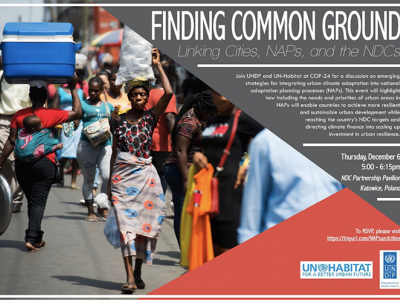 COP24 side event: Finding common ground: Linking cities NAPs and the NDCs
COP24 side event: Finding common ground: Linking cities NAPs and the NDCs 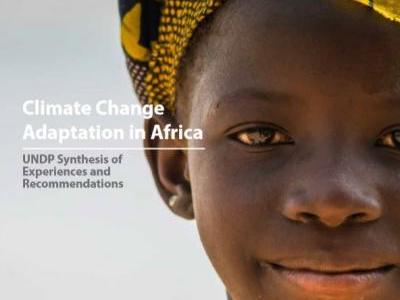 UNDP: ‘Climate change is pushing Africa to a tipping point, threatening economic and development gains’
UNDP: ‘Climate change is pushing Africa to a tipping point, threatening economic and development gains’ 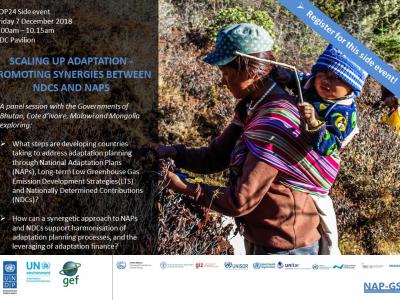 COP24 side event: Scaling up adaptation - promoting synergies between NDCs & NAPs
COP24 side event: Scaling up adaptation - promoting synergies between NDCs & NAPs 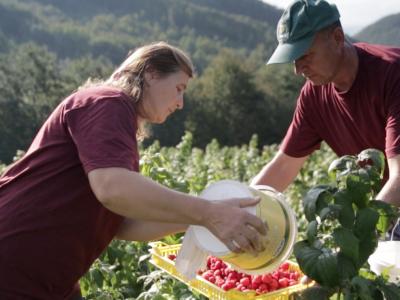 Why planning for adaptation is important to Europe and Central Asia
Why planning for adaptation is important to Europe and Central Asia 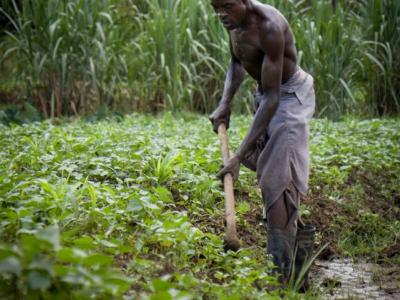 Government and United Nations in Uganda launch new strategic framework to tackle climate change in the agriculture sector
Government and United Nations in Uganda launch new strategic framework to tackle climate change in the agriculture sector 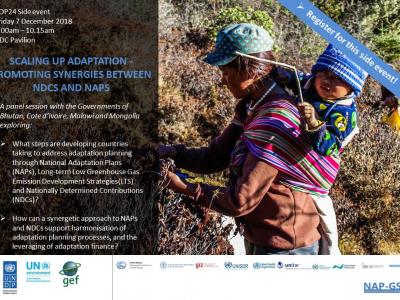 COP24 Side Event:Scaling up adaptation-Promoting synergies between NDCs & NAPs
COP24 Side Event:Scaling up adaptation-Promoting synergies between NDCs & NAPs 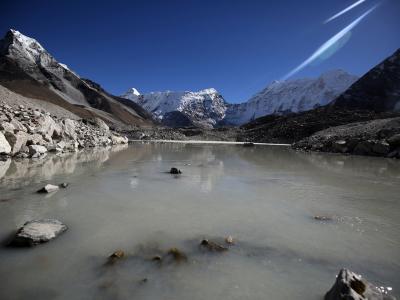 Nepal and UN Environment launch GCF-NAP project
Nepal and UN Environment launch GCF-NAP project 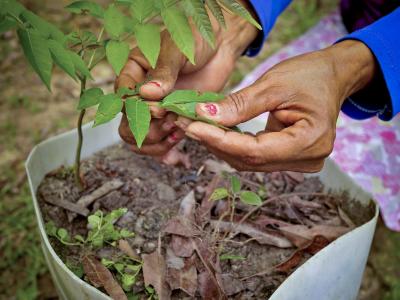 Monitoring and evaluating climate change adaptation in the Colombia’s agricultural sector
Monitoring and evaluating climate change adaptation in the Colombia’s agricultural sector 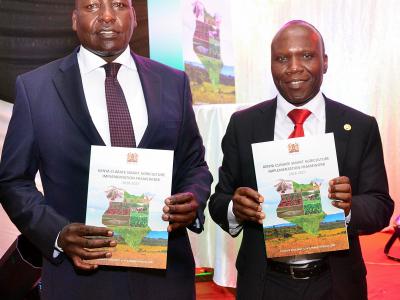 Kenya launches 10-year Climate Smart Agriculture Implementation Framework
Kenya launches 10-year Climate Smart Agriculture Implementation Framework 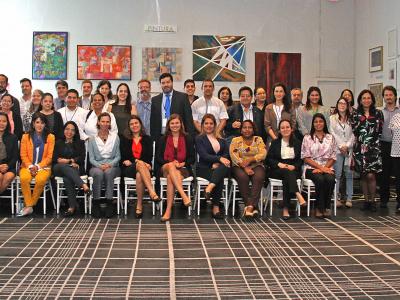 NAP Expo Regional 2018 y el Simposio sobre el Corredor Seco Centroamericano
NAP Expo Regional 2018 y el Simposio sobre el Corredor Seco Centroamericano 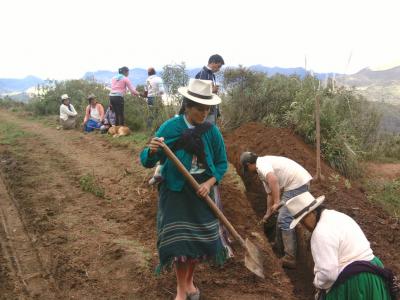 Connecting adaptation planning with resilience and the Sustainable Development Goals in Latin America
Connecting adaptation planning with resilience and the Sustainable Development Goals in Latin America 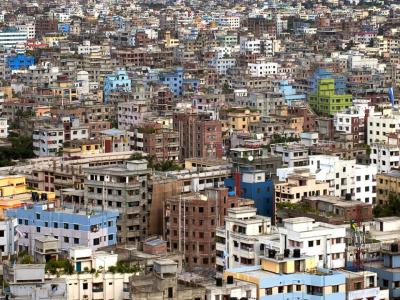 Uruguay’s cities make headway towards sustainability through adaptation planning
Uruguay’s cities make headway towards sustainability through adaptation planning 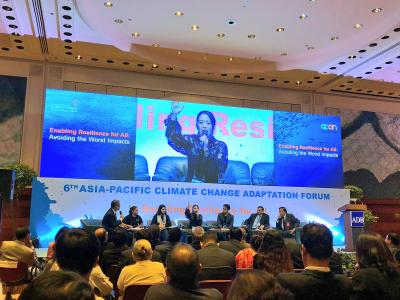 APAN Forum 2018: Experts Gather to Foster Learning to ‘Enable Resilience for All’
APAN Forum 2018: Experts Gather to Foster Learning to ‘Enable Resilience for All’ 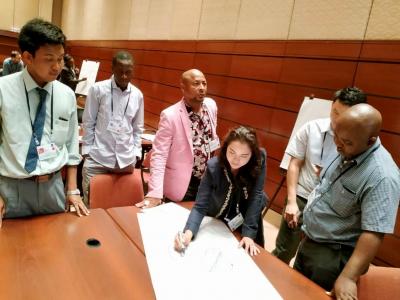 Advancing South-South cooperation on resilience between Asia and Africa
Advancing South-South cooperation on resilience between Asia and Africa 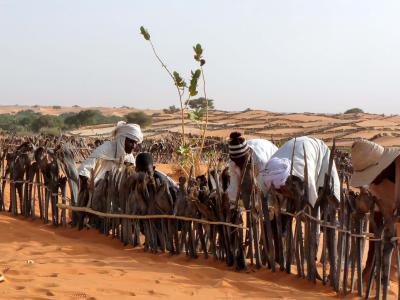 Launch of two adaptation projects to advance Niger NAP
Launch of two adaptation projects to advance Niger NAP 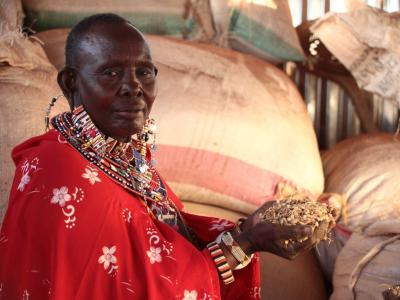 Transforming agriculture in Africa is key to a more peaceful world
Transforming agriculture in Africa is key to a more peaceful world 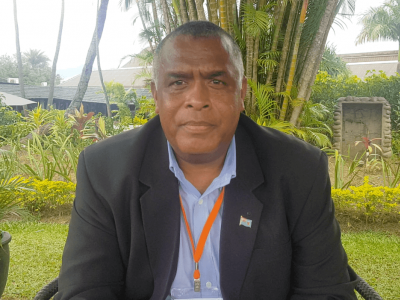 Climate risk-informed governance in Fiji
Climate risk-informed governance in Fiji 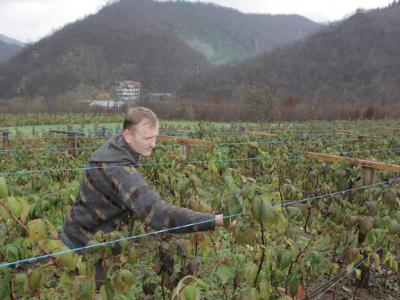 UNDP-supported National Adaptation Plan project benefits from US$2.5 million GCF grant
UNDP-supported National Adaptation Plan project benefits from US$2.5 million GCF grant 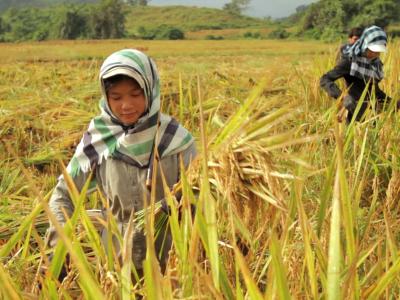 Lao PDR and UN Environment launch development of GEF project proposal to advance NAP process
Lao PDR and UN Environment launch development of GEF project proposal to advance NAP process 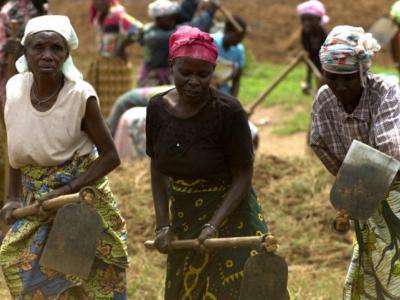 Capacity building to raise finance for climate resilience in Africa
Capacity building to raise finance for climate resilience in Africa 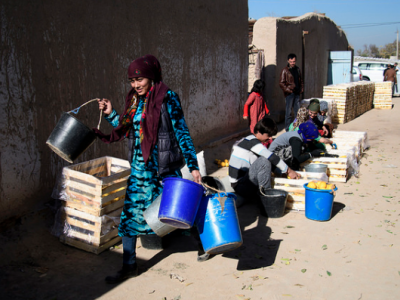 Statement by Pratibha Mehta at GCF Dialogue
Statement by Pratibha Mehta at GCF Dialogue 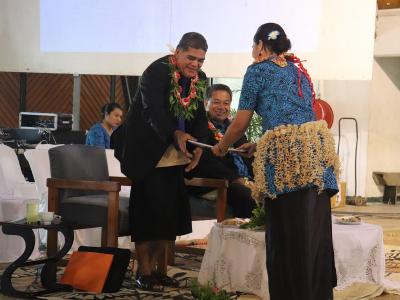 Tonga launches new 10-year integrated climate change and disaster management plan
Tonga launches new 10-year integrated climate change and disaster management plan 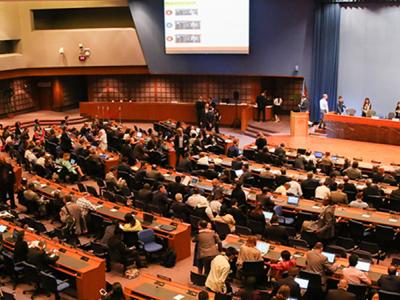 Bangkok climate talks discuss adaptation efforts under the Paris Agreement
Bangkok climate talks discuss adaptation efforts under the Paris Agreement 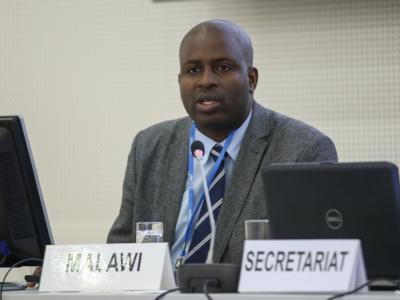 Fred Kossam: In memoriam
Fred Kossam: In memoriam 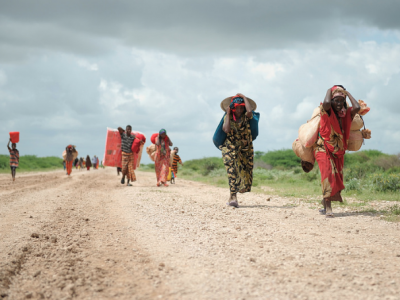 The bedrocks of peace and prosperity
The bedrocks of peace and prosperity 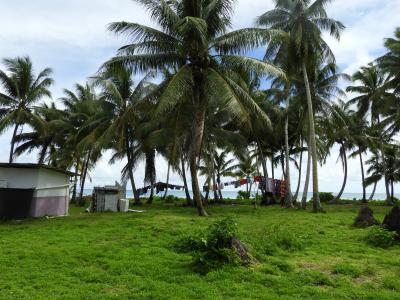 Advancing climate resilience in the Pacific
Advancing climate resilience in the Pacific 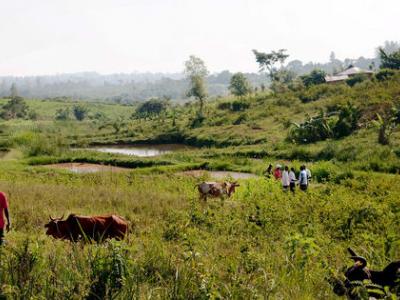 Innovative and integrated approaches to agriculture adaptation planning
Innovative and integrated approaches to agriculture adaptation planning 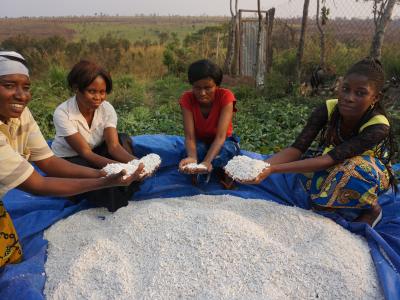 Tapping GCF readiness funding for national adaptation plans
Tapping GCF readiness funding for national adaptation plans  New UNFCCC report highlights the state of play on NAPs
New UNFCCC report highlights the state of play on NAPs 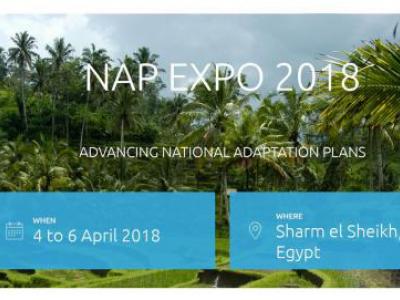 NAP Expo 2018 delivers vibrant exchange on climate change adaptation planning
NAP Expo 2018 delivers vibrant exchange on climate change adaptation planning  Principles in Practice: Integrating Adaptation into Long-term Strategies
Principles in Practice: Integrating Adaptation into Long-term Strategies 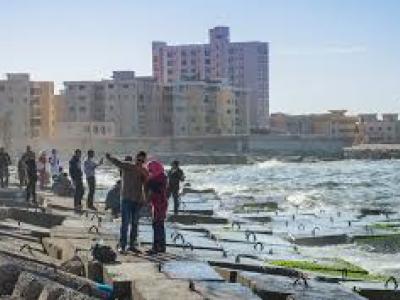 NAP Expo 2018: Advancing National Adaptation Plans
NAP Expo 2018: Advancing National Adaptation Plans 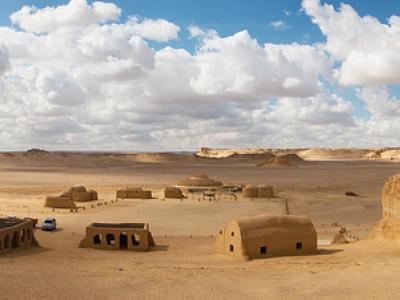 Planning for Paris
Planning for Paris 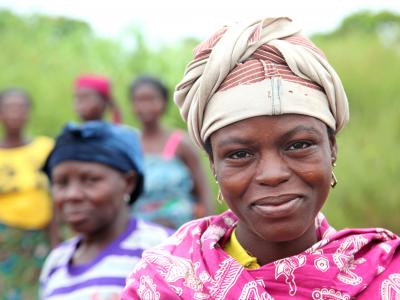 NAP-GSP publications: lessons learned in adaptation planning
NAP-GSP publications: lessons learned in adaptation planning  NAP trainers are skilled-up through the NAP-GSP ToT
NAP trainers are skilled-up through the NAP-GSP ToT 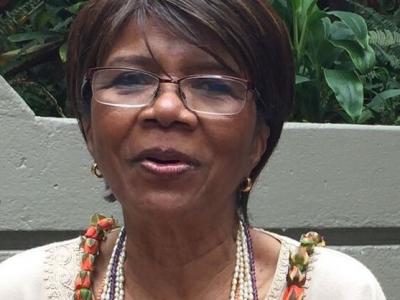 Environment chief: Why we’re prioritizing climate governance in Liberia
Environment chief: Why we’re prioritizing climate governance in Liberia 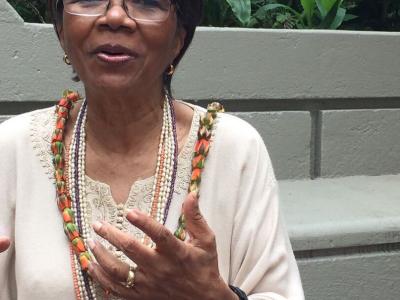 Environment chief: Why we’re prioritizing climate governance in Liberia
Environment chief: Why we’re prioritizing climate governance in Liberia 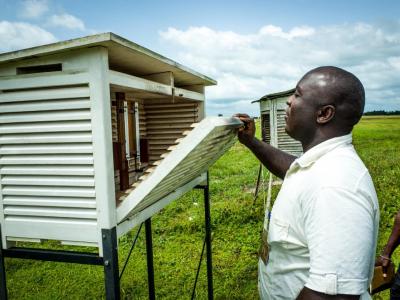 Building effective climate governance in Liberia
Building effective climate governance in Liberia 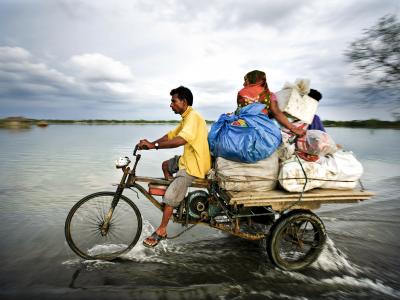 Gobeshona: Cultivating ‘South-South’ peer-to-peer exchange to build adaptive capacity
Gobeshona: Cultivating ‘South-South’ peer-to-peer exchange to build adaptive capacity 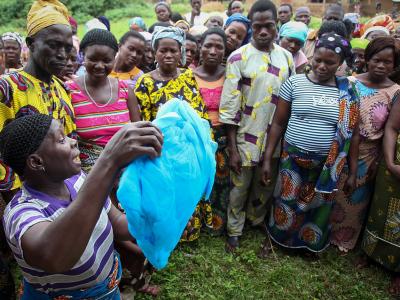 National Adaptation Plans under the UNFCCC Process - Webinar
National Adaptation Plans under the UNFCCC Process - Webinar 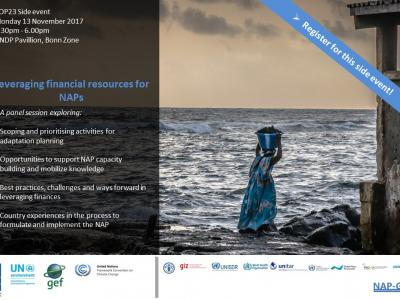 Developing countries explore how to leverage financial resources for NAPs
Developing countries explore how to leverage financial resources for NAPs 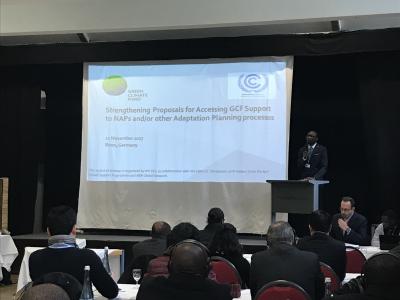 GCF 'NAP Clinic' at COP 23 tackles timely questions around NAP support
GCF 'NAP Clinic' at COP 23 tackles timely questions around NAP support 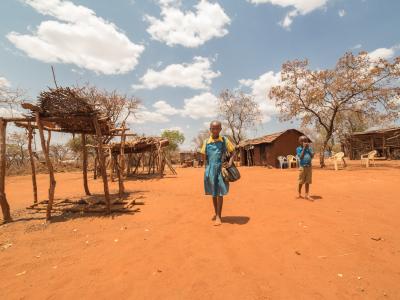 Agriculture takes a leap forward at Bonn Climate Talks
Agriculture takes a leap forward at Bonn Climate Talks  African developing countries gather to advance their climate change adaptation planning
African developing countries gather to advance their climate change adaptation planning 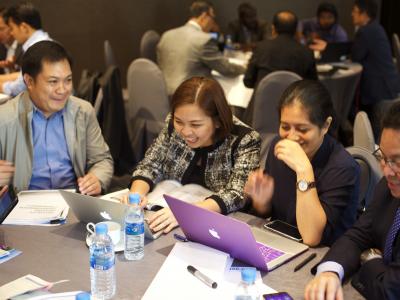 Asian countries meet to focus on climate change adaptation and water resources
Asian countries meet to focus on climate change adaptation and water resources 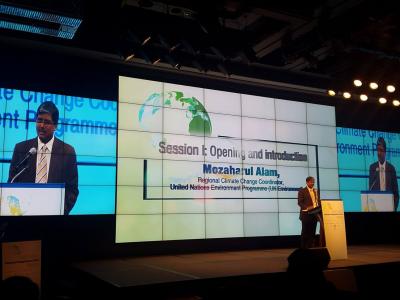 NAP Expo Asia opens in Seoul
NAP Expo Asia opens in Seoul 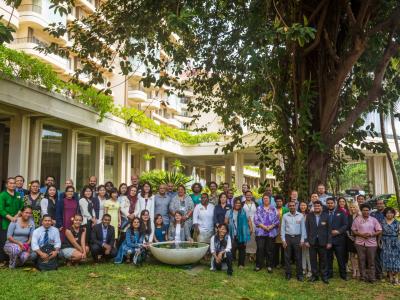 test
test 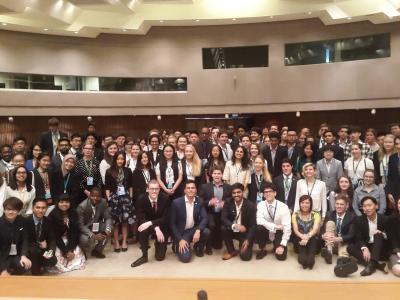 UNDP and climate change: Session at USLS 2017 BKK
UNDP and climate change: Session at USLS 2017 BKK  Liberia receives first installment of US$2.2 million GCF grant for climate adaptation
Liberia receives first installment of US$2.2 million GCF grant for climate adaptation 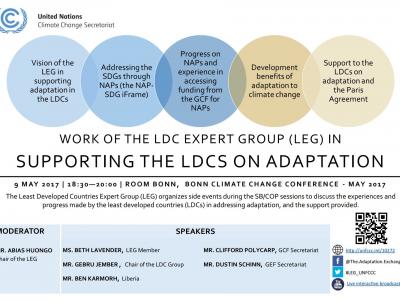 LDCs consider new opportunities for adaptation support
LDCs consider new opportunities for adaptation support 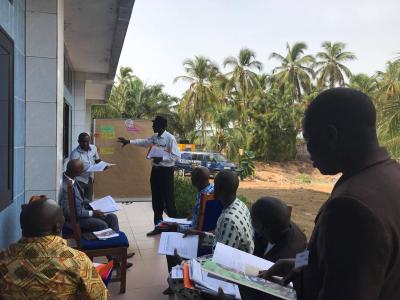 Benin drives forward the integration of climate change into development plans
Benin drives forward the integration of climate change into development plans 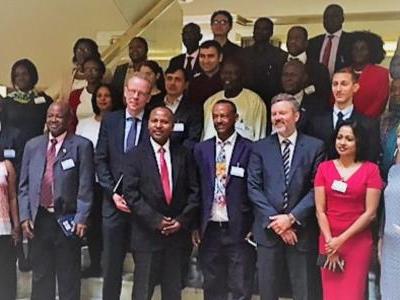 LDCs prepare for critical climate negotiations with the support of UNDP and Norway
LDCs prepare for critical climate negotiations with the support of UNDP and Norway 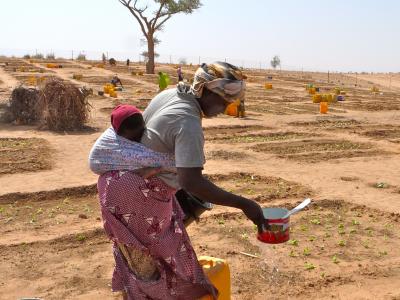 More than 30 countries lay the groundwork for the NAP process with support from NAP-GSP
More than 30 countries lay the groundwork for the NAP process with support from NAP-GSP 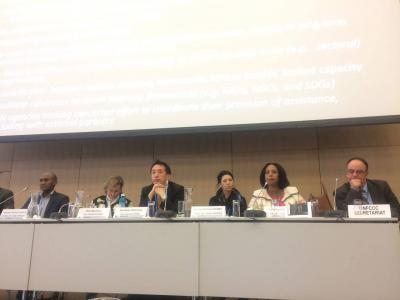 6th meeting of the Durban Forum on Capacity-Building: ‘Enhancing Capacities for Adaptation in the Context of NAPs and NDCs’
6th meeting of the Durban Forum on Capacity-Building: ‘Enhancing Capacities for Adaptation in the Context of NAPs and NDCs’ 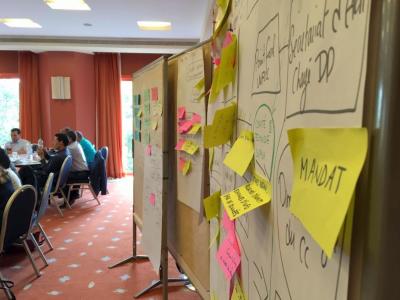 Upgrading technical skills of climate change focal points in Morocco
Upgrading technical skills of climate change focal points in Morocco 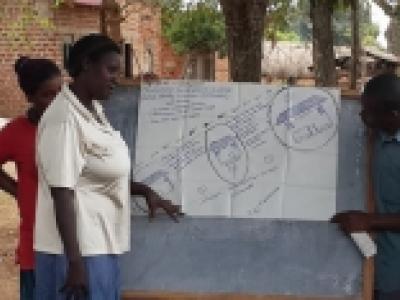 Connecting Uganda policymakers for gender-responsive climate change adaptation
Connecting Uganda policymakers for gender-responsive climate change adaptation 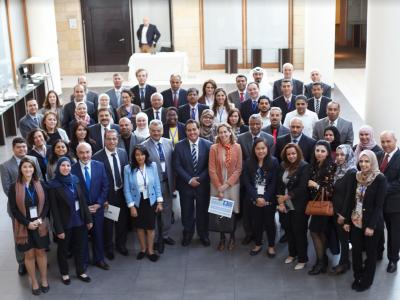 Middle East and North African governments have identified common needs to boost climate change adaptation and resilience
Middle East and North African governments have identified common needs to boost climate change adaptation and resilience 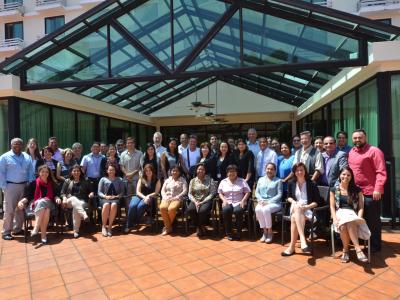 Central American countries, Cuba and the Dominican Republic share experiences in climate change adaptation planning
Central American countries, Cuba and the Dominican Republic share experiences in climate change adaptation planning 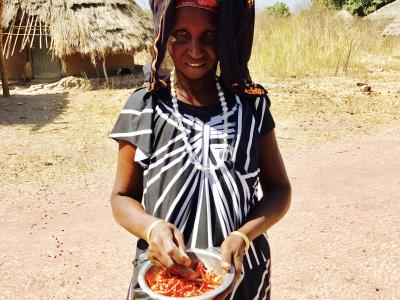 Empowering local communities is key to advancing the NAP process in Guinea-Bissau
Empowering local communities is key to advancing the NAP process in Guinea-Bissau 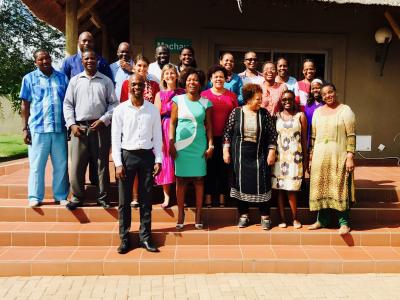 Connecting to build a National Adaptation Plan roadmap in Mozambique
Connecting to build a National Adaptation Plan roadmap in Mozambique 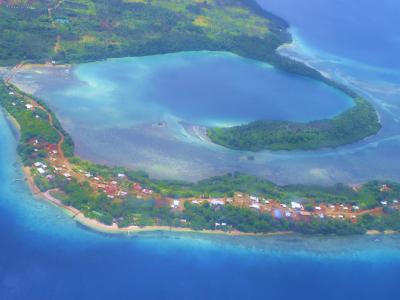 NAP and Cost Benefit Analysis training for Tonga
NAP and Cost Benefit Analysis training for Tonga 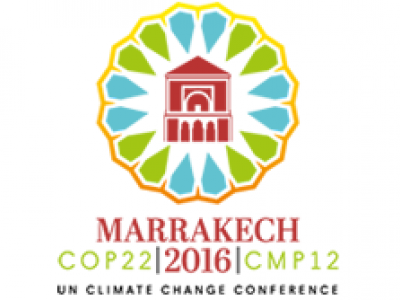 COP22 - Focus on National Adaptation Plans (NAPs)
COP22 - Focus on National Adaptation Plans (NAPs) 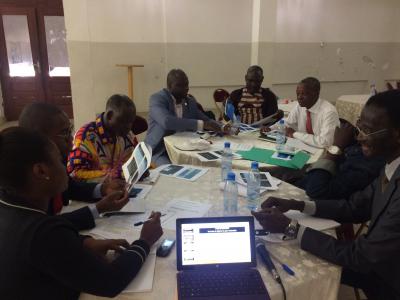 Advancing NAPs at country level
Advancing NAPs at country level 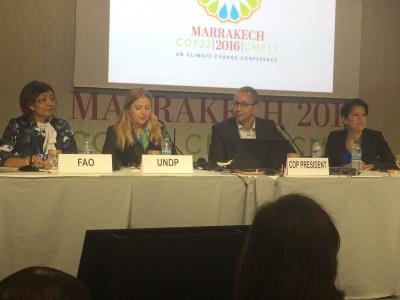 GCF approves first fast-track NAP grants for Liberia and Nepal
GCF approves first fast-track NAP grants for Liberia and Nepal 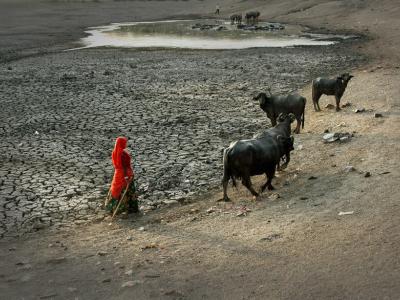 Launch of joint UNDP/UNEP NAP-GSP expanded support to LDCs
Launch of joint UNDP/UNEP NAP-GSP expanded support to LDCs 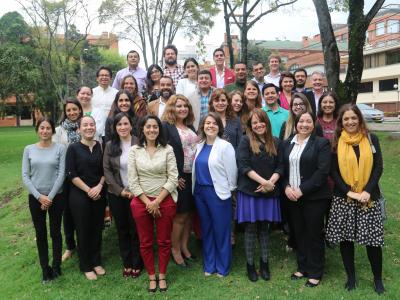 Latin-American countries meet to address NAPs
Latin-American countries meet to address NAPs 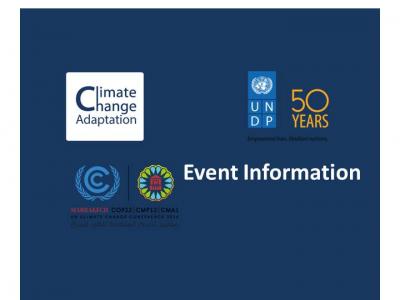 COP 22 Side Event Information
COP 22 Side Event Information 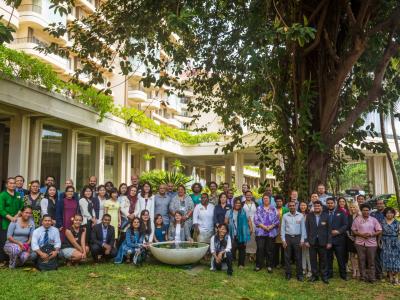 Representatives from Asia and the Pacific gather to focus on NAP
Representatives from Asia and the Pacific gather to focus on NAP 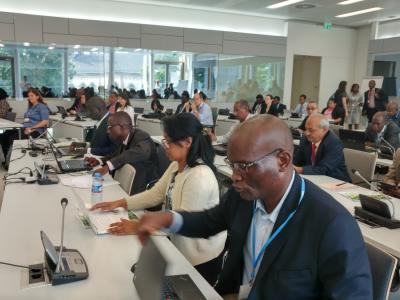 Baselines for NAPs and scaling up adaptation options discussed at NAP Expo
Baselines for NAPs and scaling up adaptation options discussed at NAP Expo 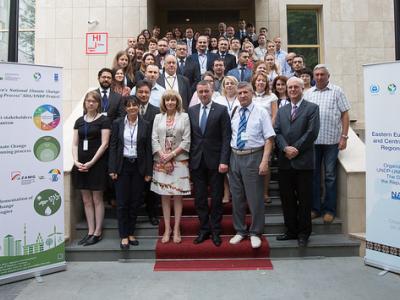 EECCA countries gather to discuss coordinated action towards disaster risk reduction and climate adaptation
EECCA countries gather to discuss coordinated action towards disaster risk reduction and climate adaptation 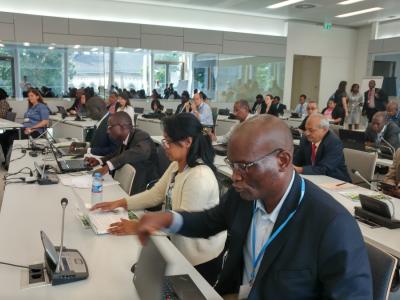 NAP Expo 2016 - Advancing National Adaptation Plans post-Paris
NAP Expo 2016 - Advancing National Adaptation Plans post-Paris 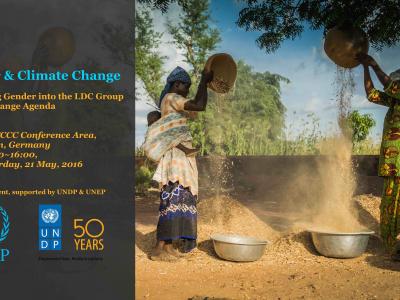 SB44: Gender and climate change
SB44: Gender and climate change 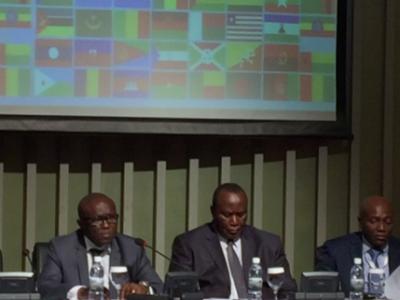 Post-Paris Ministerial Meeting on Climate Change
Post-Paris Ministerial Meeting on Climate Change 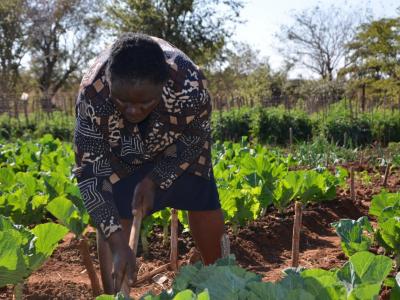 NAP support for Zimbabwe
NAP support for Zimbabwe  MSME key to community climate resilience
MSME key to community climate resilience 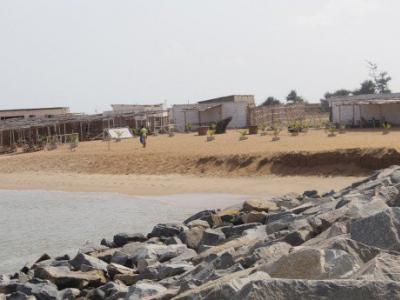 Advancing climate finance readiness through adaptation planning in Benin
Advancing climate finance readiness through adaptation planning in Benin 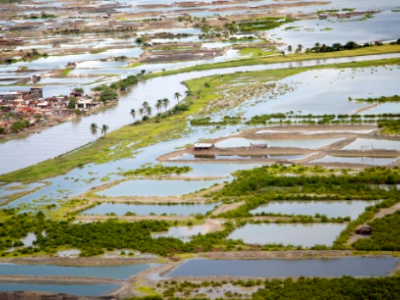 The 29th meeting of the LDC Expert Group
The 29th meeting of the LDC Expert Group 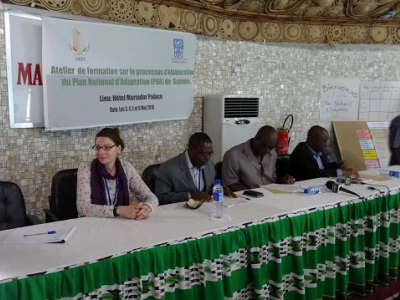 The Republic of Guinea Initiates its National Adaptation Plan Process
The Republic of Guinea Initiates its National Adaptation Plan Process 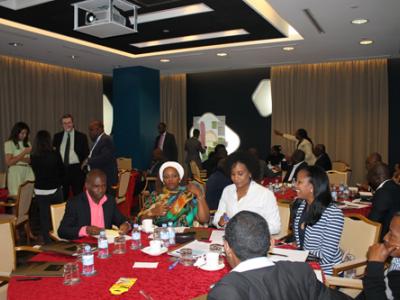 Angola undertakes NAP training for key ministries
Angola undertakes NAP training for key ministries 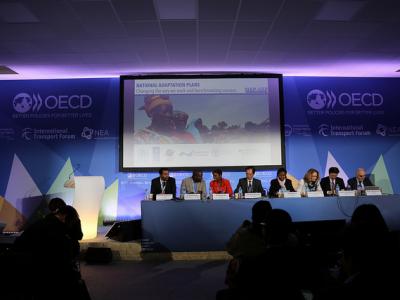 COP21 SIDE EVENT: NAPS - Changing the way we work and benchmarking success
COP21 SIDE EVENT: NAPS - Changing the way we work and benchmarking success 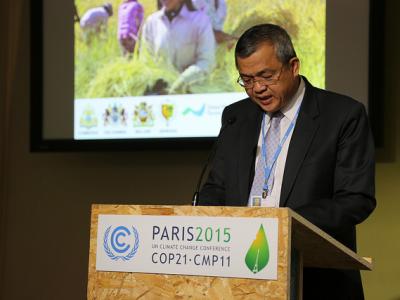 Least Developed Countries discuss ways to scale up Adaptation Finance at COP21
Least Developed Countries discuss ways to scale up Adaptation Finance at COP21 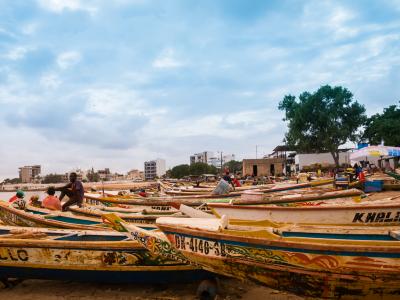 Supporting key sectors through the NAP process in Senegal
Supporting key sectors through the NAP process in Senegal 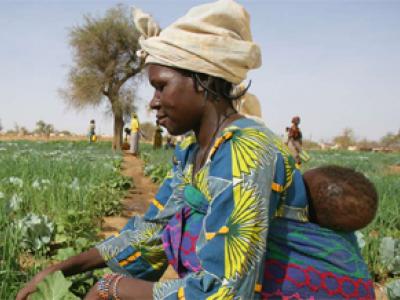 Burkina Faso: Leading on NAP formulation to adapt and prepare
Burkina Faso: Leading on NAP formulation to adapt and prepare 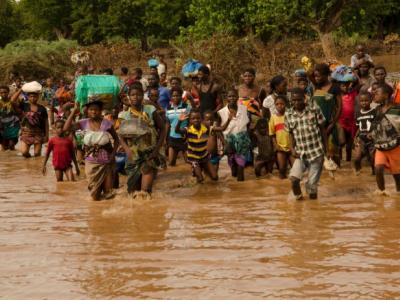 Malawi: NAP progress and opportunities
Malawi: NAP progress and opportunities 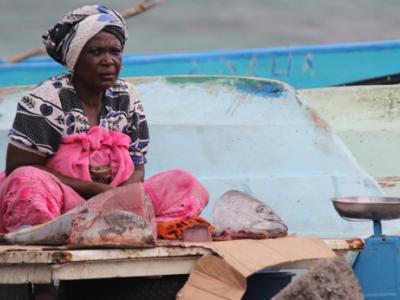 Launching the NAP process in Comoros
Launching the NAP process in Comoros 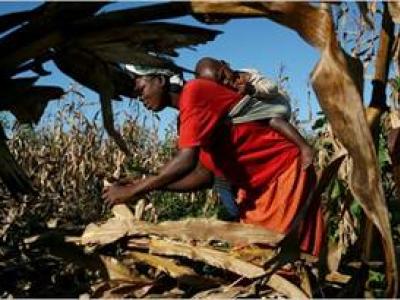 Malawi National Training Workshop on the NAP process
Malawi National Training Workshop on the NAP process 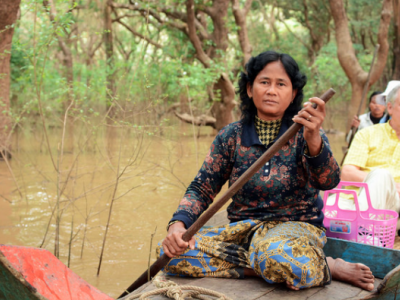 Presentations on the NAP process in Cambodia
Presentations on the NAP process in Cambodia 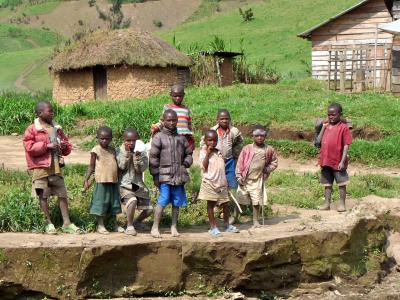 UNCC: Learn - New e-learning tools to support the NAP process
UNCC: Learn - New e-learning tools to support the NAP process 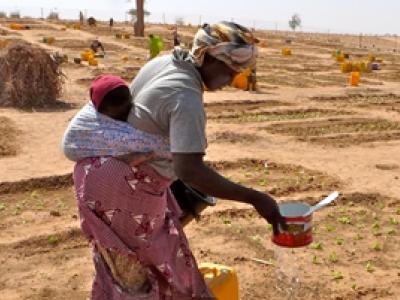 Addressing long-term climate risks in Niger
Addressing long-term climate risks in Niger 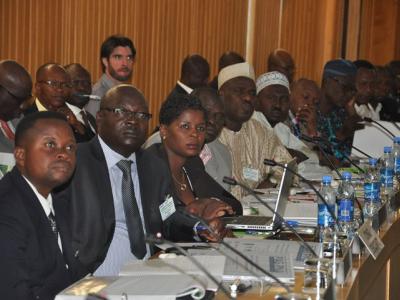 African LDCs gather to focus on NAPs
African LDCs gather to focus on NAPs 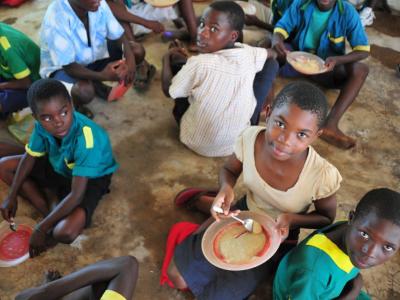 Launch event for the NAP process in Malawi
Launch event for the NAP process in Malawi 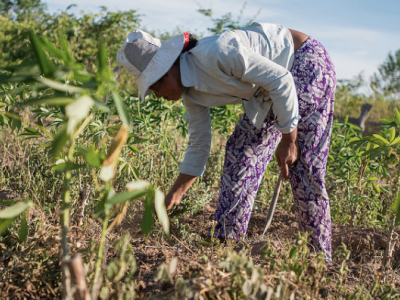 Mission to Cambodia to take stock of adaptation planning
Mission to Cambodia to take stock of adaptation planning 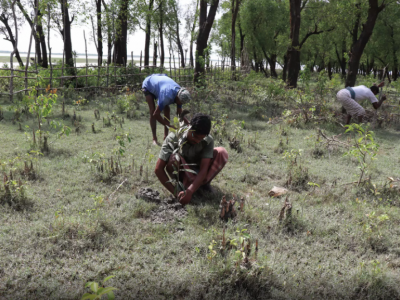 Interview with Government of Bangladesh on the countries NAP process
Interview with Government of Bangladesh on the countries NAP process 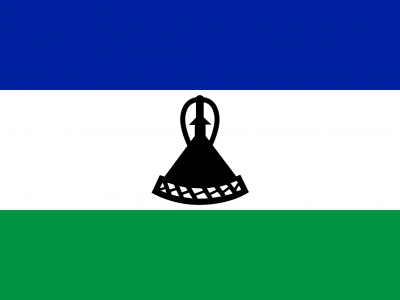 NAP-GSP assistance to Lesotho
NAP-GSP assistance to Lesotho 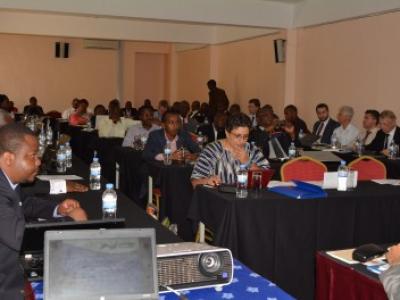 Workshop on water security in East Africa advances NAPs
Workshop on water security in East Africa advances NAPs  North / South Dialogue on NAPs in Brussels
North / South Dialogue on NAPs in Brussels 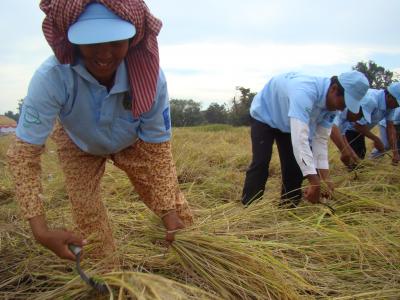 Advancing national adaptation strategies in Asia
Advancing national adaptation strategies in Asia 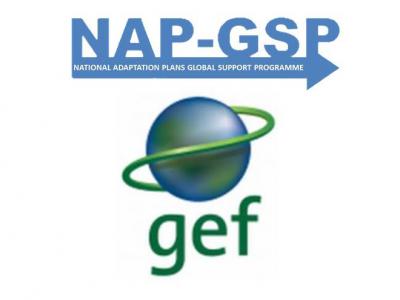 First Board Meeting for the LDCF-financed NAP-GSP
First Board Meeting for the LDCF-financed NAP-GSP 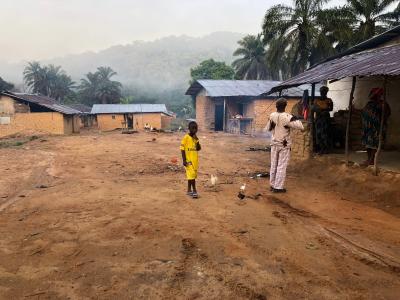 LEG: Advancing National Adaptation Plans in Africa
LEG: Advancing National Adaptation Plans in Africa 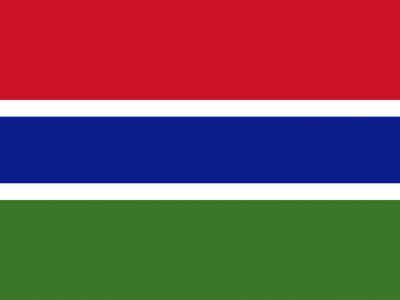 The Gambia: Integrating climate change risks into planning and finance
The Gambia: Integrating climate change risks into planning and finance 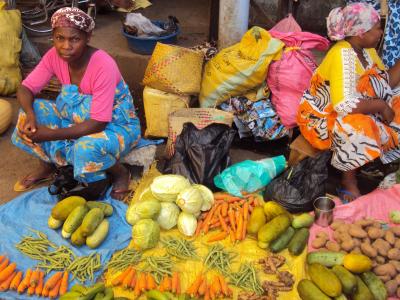 Launching NAP-GSP
Launching NAP-GSP 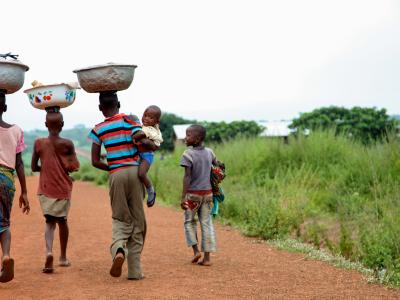 NAP Expo 2013: Launch of the NAP process for LDCs
NAP Expo 2013: Launch of the NAP process for LDCs 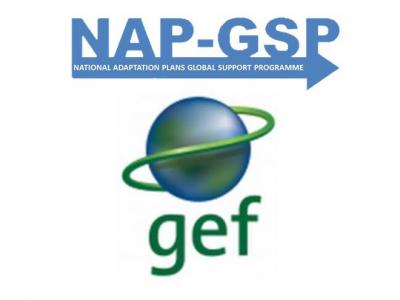 Official support for NAP-GSP from GEF-LDCF
Official support for NAP-GSP from GEF-LDCF 